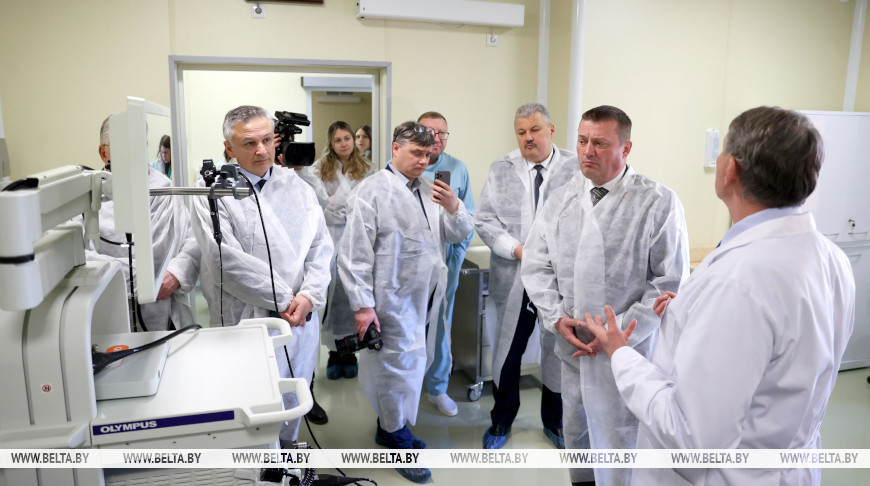
BREST, 25 February (BelTA) - Representatives of international organizations have assessed the provision of medical care in urban and rural communities in Brest Oblast, BelTA learned.
Representatives of the UN, UNDP, WHO were in Brest Oblast on 24-25 February. They visited educational, healthcare and cultural institutions, sports facilities in Baranovichi District, Kobrin District and Kamenets District



“We are here for two days. We have had a lot of impressions and they are most positive. I would like to say a few words about the healthcare institutions we visited. In particular, we toured the children's hospital [Brest Children's Regional Hospital] where they provides the most modern assistance to very small children, newborns. I am a doctor by profession, a surgeon, so there were a lot of interesting things from the medical point of view,” said UN Resident Coordinator in Belarus Rasul Baghirov.
He called the development of healthcare an important part of the efforts to achieve sustainable development goals. “It is of great importance for the country. Besides the fact that it is fertility, life expectancy, it is also a humane attitude. Because this is not the case in all countries,” he noted.



Living and working in Belarus, I see that everything is done for the benefit of the individual. “This is a priority for us too. For example, our program for the next five years prioritizes an individual and his well-being,” Rasul Baghirov stressed.
In addition to Brest Children's Regional Hospital, representatives of the international organizations visited healthcare institutions in rural communities in Kobrin District and Kamenets District. “We visited rural health clinics, mobile and stationary. Both are very important primary healthcare facilities. They provide first medical aid and also educate a person who comes for a consult,” the UN Resident Coordinator in Belarus noted.
The international delegation was accompanied by Sergei Khomenko, National Coordinator for Sustainable Development Goals, Deputy Chairman of the Council of the Republic, and Igor Brilevich, Chairman of the Brest Oblast Council of Deputies, member of the Council of the Republic.



Representatives of the UN, UNDP, WHO were in Brest Oblast on 24-25 February. They visited educational, healthcare and cultural institutions, sports facilities in Baranovichi District, Kobrin District and Kamenets District



“We are here for two days. We have had a lot of impressions and they are most positive. I would like to say a few words about the healthcare institutions we visited. In particular, we toured the children's hospital [Brest Children's Regional Hospital] where they provides the most modern assistance to very small children, newborns. I am a doctor by profession, a surgeon, so there were a lot of interesting things from the medical point of view,” said UN Resident Coordinator in Belarus Rasul Baghirov.
He called the development of healthcare an important part of the efforts to achieve sustainable development goals. “It is of great importance for the country. Besides the fact that it is fertility, life expectancy, it is also a humane attitude. Because this is not the case in all countries,” he noted.



Living and working in Belarus, I see that everything is done for the benefit of the individual. “This is a priority for us too. For example, our program for the next five years prioritizes an individual and his well-being,” Rasul Baghirov stressed.
In addition to Brest Children's Regional Hospital, representatives of the international organizations visited healthcare institutions in rural communities in Kobrin District and Kamenets District. “We visited rural health clinics, mobile and stationary. Both are very important primary healthcare facilities. They provide first medical aid and also educate a person who comes for a consult,” the UN Resident Coordinator in Belarus noted.
The international delegation was accompanied by Sergei Khomenko, National Coordinator for Sustainable Development Goals, Deputy Chairman of the Council of the Republic, and Igor Brilevich, Chairman of the Brest Oblast Council of Deputies, member of the Council of the Republic.
















